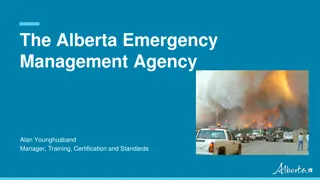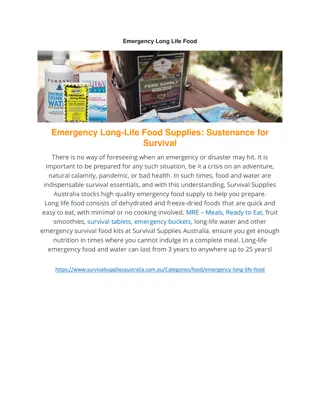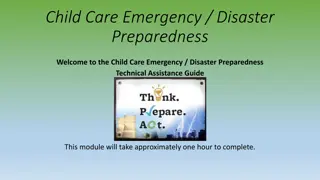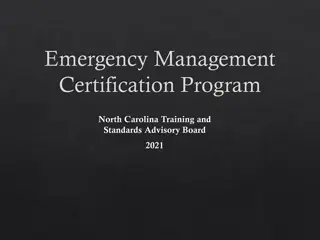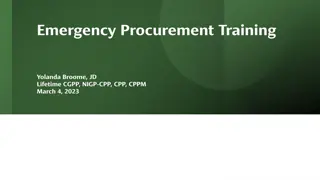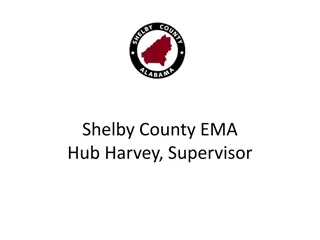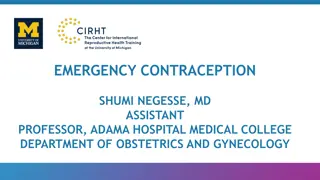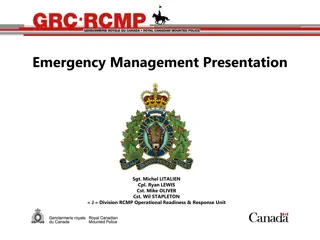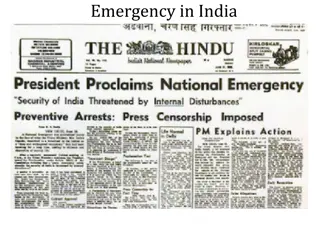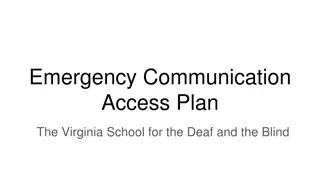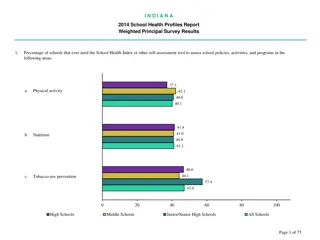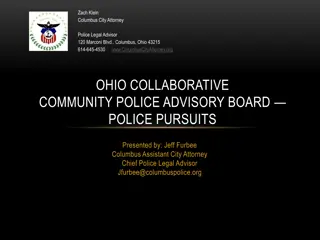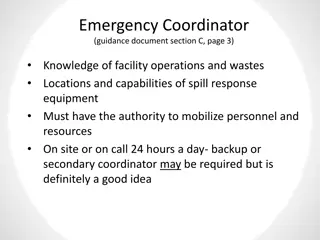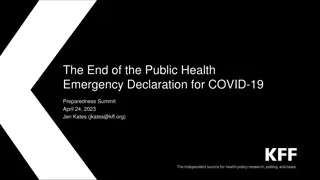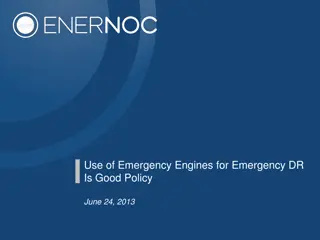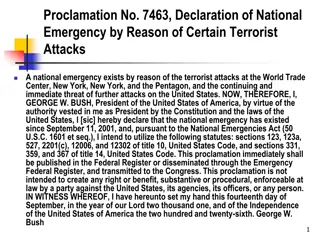Comprehensive Guide to Health and Emergency Management in School Settings
This comprehensive guide covers the laws, regulations, and services governing health management in school settings, including federal and state laws impacting school health services. It delves into the responsibilities of school health services, the requirements for a medical director, and protocols for administering epinephrine auto-injectors in emergencies.
Download Presentation

Please find below an Image/Link to download the presentation.
The content on the website is provided AS IS for your information and personal use only. It may not be sold, licensed, or shared on other websites without obtaining consent from the author. Download presentation by click this link. If you encounter any issues during the download, it is possible that the publisher has removed the file from their server.
E N D
Presentation Transcript
Health and Emergency Management in School Settings NOVEMBER 2018
Overview Education Laws/regulations governing public school health services Office of Children and Family Services and licensed SACC programs
Laws Impacting School Health Services Federal Laws State Laws FERPA Family Educational Rights and Privacy Act USDOE Family Compliance Office Education Law Article 19 Education Law Articles 139 , 137, and 131 HIPAA- Health Insurance Portability and Accountability Act USHHS- Health Privacy Information Public Health Law Section 2164 IDEA-Individuals with Disabilities Act USDOE- IDEA Public Health Law Section 3000 ADA-Americans with Disabilities Act, Section 504 USDOE- Civil Rights
School Health Services Education Law Article 19 section 901, School health services include but are not limited to: Medical examinations Guide parents, students and teachers in procedures for preventing and correcting defects and diseases Scoliosis screening Vision screening and audiometer tests Instruct the school personnel in procedures Instruct the school personnel in procedures to take in case of accident or illness to take in case of accident or illness Inform parents or other persons in parental relation to the student, pupils and teachers of the individual student's health condition subject to Federal and State confidentiality laws Survey and make necessary recommendations concerning the health and safety aspects of school facilities and the provision of health information
Education Law Article 19 section 902 requires school districts to employ a director of school health services, (commonly referred to as the medical director) to oversee school health services A medical director must be a duly licensed physician or nurse practitioner
Epinephrine Auto-injectors Student or staff in the building: Students with provider orders: Unlicensed staff trained per District protocol may administer epinephrine auto-injectors in the event of an emergency pursuant to the requirements of section 3000-c of the public health law to any student or staff in a school building having anaphylactic symptoms whether or not there is a previous history of severe allergic reaction. Unlicensed staff trained by RN, NP, PA or physician MD/DO may administer an epinephrine auto- injector to a specific student specific student during the school day on school property and at any school function, in emergency situations, where an appropriately licensed health professional is not available in accordance with the provider s order.
Automatic External Defibrillators (AED) Required in all public schools and at school sponsored events. PAD application must be filed with regional EMS office. Requires a collaborative agreement with an emergency health care provider; a physician, NP, or PA certified in emergency medicine Staff currently certified in CPR/AED must be on site during school day and at school sponsored events Use of an AED must be reported to regional EMS office. AED must be maintained and checked on a regular basis to ensure function.
School Emergency Drills School emergency drill planning should include how to meet student chronic health needs during lockdowns. Students with diabetes will need access to glucose replacement. Classrooms can store juice boxes etc. for this purpose Students with asthma should carry their inhalers with them Cell phones carried by teachers may alert authorities to a health emergency. Epinephrine auto-injectors should be kept as close to the student as possible. Basic First Aid supplies in each room with staff instructed how to use, and written prompts ( e.g. gauze, gloves, tape, bandaids)
Office of Children and Family Services Programs with licensed by OCFS should contact them for information on how they are to handle health emergencies. NYS OCFS Division of Childcare Services (Home Office) (518) 474-9454
NYS Education Department Karen Hollowood Martha Morrissey Associates in School Nursing 518-486-6090 studentsupportservices@nysed.gov
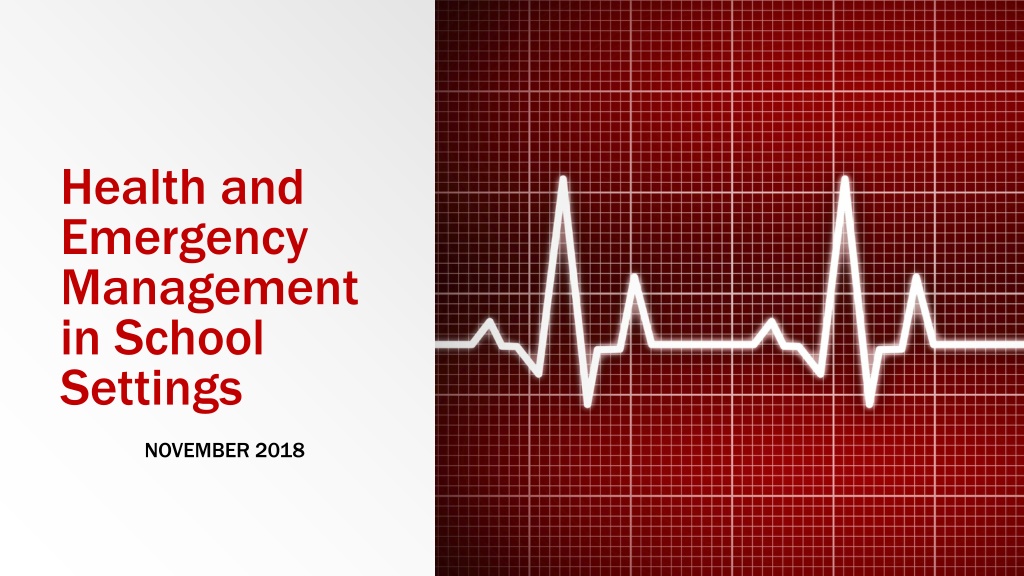
 undefined
undefined



